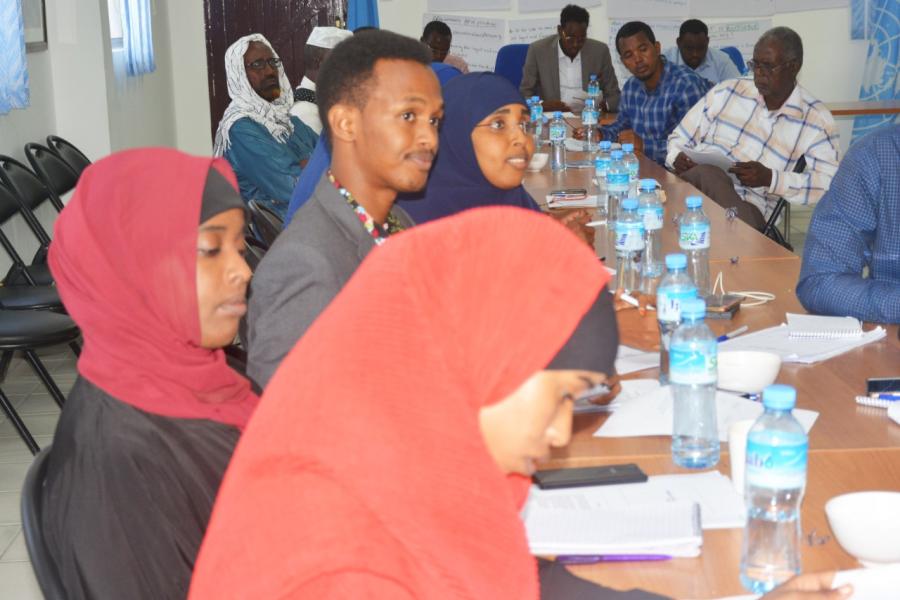International legal aid expert delivers training to Somali legal and justice teams
28 February 2019
- The training was led by the Federal Ministry of Justice, with the support of the United Nations Development Programme, and with funding from the EU, Sweden and Netherlands.
25 February 2019, Mogadishu. Thirty legal and justice professionals from across Somalia have taken part in a first of a kind three-day training on legal aid, which was delivered by international legal expert David McQuoid Mason, Professor of Law at the Centre for Socio-Studies, University of KwaZulu-Natal, Durban.
Judges, lawyers, NGO legal aid practitioners, representatives from civil society, government officials, and legal academics from across Federal Member States and the Benadir region, attended the training, which covered international legal aid best practice and policy, and how it can be applied in a Somali context.
The training was led by the Federal Ministry of Justice, with the support of the United Nations Development Programme, and with funding from the EU, Sweden and Netherlands.

Speaking at the event, the Minister of Justice, Hassan Hussein Haji, said the delivery of effective services such as legal aid to the people was important. “I encourage justice sectors at the federal and state levels to double their efforts to increase access to justice to the citizens, and likewise to ensure those working in justice have the proper training,” he said.
The workshop also aimed to provide guidance on how to develop existing Somali legal aid policy further, using global best practice and international legal aid guidelines, and to assist the government, judiciary and independent legal aid practitioners, in drafting a legal aid Act that could regulate free legal services, and ensure they can be delivered to more people across the country.
Professor McQuoid Mason, speaking after the training, said buy in and consultation was a core part of policy and legislation development globally.
“In this workshop, I’ve got ideas from the people attending here first, and then we explored international practice, and then we try and combine the two. So hopefully people will go back and share what they have learnt here.”
He added that government visibility through services such as legal aid was key to stability, and that laws should adhere to human rights standards.
“In Somalia, because of shortage of resources, you have to use all the structures. You can use traditional structures to [deliver legal aid], but traditional leaders and religious leaders must apply traditional and religious law that is consistent with the provisions of the Constitution and fundamental human rights. And for stability there must be equality, justice reform, and that the government is visible as a caring organisation in rural areas, and regarded as a caring organisation not solely as a ‘prosecutorial agency’ consisting of the police, prosecutors and prisons."
Ibrahim Abdullahi Aden, a Senior Advisor with the Ministry of Justice, said the Ministry would take the inputs from the training back to incorporate them into the legal documents. He added that legal aid was vital in Somalia where there were a number of civil and criminal cases that Somali people cannot afford to deal with on their own.
“We have a high poverty rate, and we need to help our people get access to legal support,” he said.
The legal aid training was delivered under a UN Joint Justice Programme, that works to increase access to justice for Somali people, in particular vulnerable and marginalised groups and people in rural communities. The programme is funded by the European Union, Sweden and the Netherlands.
ENDS
Contacts:
Doel Mukerjee, United Nations Development Programme (UNDP) Programme Manager, UN Joint Rule of Law Programme Somalia. Email: doel.mukerjee@undp.org

